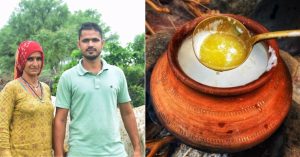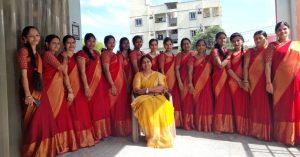Sikkim Woman’s Skincare Startup Uses Rare Himalayan Plants, Earns $1 Million Valuation
Founder of Agapi Sikkim, Rinzing Choden Bhutia left a corporate career in Delhi to start a women-led, cruelty-free skincare brand that uses indigenous Himalayan plants as raw materials.
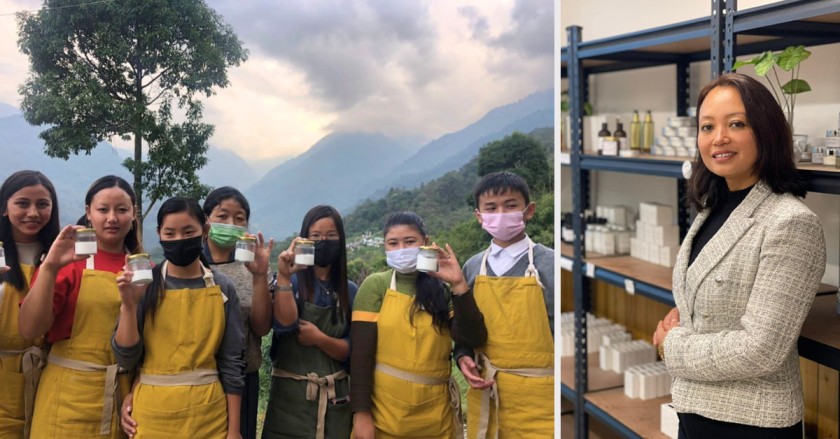
Spending most of her time in big metropolitan cities like Kolkata, Delhi, and Bengaluru, Rinzing Choden Bhutia, originally from Sikkim, missed the experience of being surrounded by nature.
While she enjoyed her corporate career, she yearned for home. “I wanted to return home for numerous reasons and live a clean, green life,” she shared in a conversation with The Better India.
Many of us dream of leaving our corporate jobs and embracing a life in the hills; however, in reality, such a change requires great courage. Leaving behind the familiar and building something new demands a certain level of determination.
In 2013, Rinzing summoned the courage to move back to Sikkim. She embarked on a journey to create a line of handcrafted skincare products that are sustainable, chemical-free, and made using indigenous plants from the Himalayan belt.
Apagi, the brainchild of Rinzing, derives its name from the Greek word for love. It is truly a labour of handcrafted love and stands as a testament to their dedication. Additionally, the brand takes pride in being a women-led startup, contributing to efforts to attract Foreign Direct Investment (FDI) in Sikkim, according to reports. The brand is currently being valued at $1 million.
Now, you might be wondering, what sets her brand apart? I’m glad you asked.
All Roads Leading Back Home
While the thought of moving back home was always on her mind, it wasn’t until 2013, with the birth of Rinzing’s first child, that she took the leap.
“I was tired of living in small spaces with Delhi’s pollution all around. What I wanted for my child was to grow up in clean air, surrounded by nature and lots of space. This was the reason why I decided to move back home,” she explains.
Upon returning, Rinzing immersed herself in motherhood. “I was enjoying that period of my life and also planning to use our ancestral land to build a plastic-free sustainable homestay in Kabi, Sikkim,” she shares.
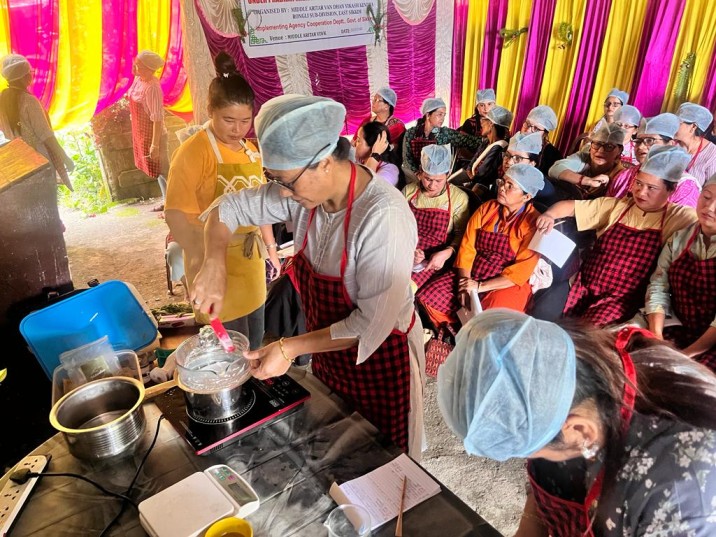
The plan was to construct wooden huts and use only sustainable materials from nature. Expanding on this idea, she discovered Petrichor, a vegan retreat in Gorubathan, West Bengal.
“They had a homestay and were teaching how to make handcrafted soaps. They used those soaps in the facility, and I took that course too. This marked the beginning of a journey I had never imagined. I really enjoyed those classes and wanted to learn more,” she says.
The class sparked an interest in her, and she envisioned making soaps for her future homestay.
“However, our plans were interrupted by the COVID-19 pandemic. We were all holed up in our homes with not much to do. I was technically free, so I expanded my research and learned more about skincare. By the end of it, I was sure of what I wanted to do,” she recalls.
In 2019, she founded Agapi Sikkim— a handcrafted, cruelty-free and natural skincare brand along with her friend and co-founder, Varsha Shreshta.
Natural, chemical-free and made with local plants
When searching for ingredients for her products, she didn’t have to look beyond her home. Growing up in Sikkim, Rinzing often observed people using naturally growing plants to address various skin ailments.
“The plants we use have been employed for generations, passed down from one generation to the next,” she explains.
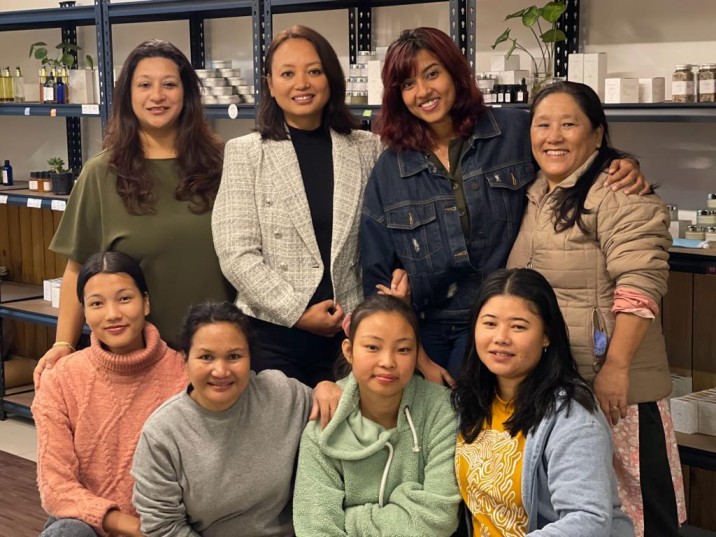
For example, when someone has high blood pressure, they might extract juice from Mugwort (a locally found weed) and consume it—a practice known to normalise blood pressure. In the case of a cut, a simple remedy involves taking a leaf, squeezing it, and applying it to the wound to stop bleeding. Similarly, for conditions like eczema, individuals create specific concoctions or preparations, continuing age-old practices that have proven effective for centuries.
These ingredients have been used for ages but are relatively unknown in the skincare industry.
“I didn’t really need specific training to know that these ingredients could work wonders on the skin,” Rinzing shares.
So, as the idea of Agapi Sikkim was taking shape in her mind, one thing Rinzing was certain of was her desire to create a line of products that harness these indigenously grown ingredients.
Rinzing uses indigenously grown ingredients such as avocado, mugwort, local varieties of aloe vera, hemp etc in her handcrafted products.
The company has sold hundreds of products countrywide including cities like Bengaluru, Kolkata and several others in and around Sikkim. The company has a range of products which include bath salts, masks, shampoos, scrubs and essential oils.
Beauty with a purpose
While designing her business model, Rinzing decided to establish a women-run business. “I conducted my first training session in Kabi. If it were cooking or baking, women would flock for a free session, but soap making was unconventional. Despite that, I went ahead with it, and to my surprise, more than 20 women showed up,” she recalls, emphasising that this motivated her to continue conducting these workshops.
Once these women are trained, some of them are hired by Rinzing, while others are free to practice on their own.
“I source their products. This way, they do not have to commit to a job and can grow at their own pace. I buy their products, and they get a chance to showcase their talent,” she says.
These workshops are provided free of cost, and Rinzing has trained 400 tribal women in and around Sikkim so far.
“The most delightful thing about this is that there is a group of 10 women who have started their own brand after taking my workshop. This way, these women have not only the opportunity to learn something new but also make a living out of it,” she says.
Rinzing also conducts workshops in rehabilitation centres. “These workshops are for people suffering from drug and alcohol addiction so that they can have an avenue of income later in life.”
She mentions that she collaborates with the government of Sikkim and self-help groups to reach women in the remotest areas of the state.
While Agapi continues to grow as a brand, Rinzing keeps refreshing her knowledge of skincare science. She recently did an online course from Formula Botanica, an organic cosmetic formulation school in the UK.
You can buy her products here.
(Edited by Padmashree Pande)
If you found our stories insightful, informative, or even just enjoyable, we invite you to consider making a voluntary payment to support the work we do at The Better India. Your contribution helps us continue producing quality content that educates, inspires, and drives positive change. Choose one of the payment options below for your contribution- By paying for the stories you value, you directly contribute to sustaining our efforts focused on making a difference in the world. Together, let’s ensure that impactful stories continue to be told and shared, enriching lives and communities alike. Thank you for your support. Here are some frequently asked questions you might find helpful to know why you are contributing?

This story made me
-
97
-
121
-
89
-
167




